According to a popular saying, all is fair in love and war. But some apply this notion to the way they conduct business, too.
So, Dr. Hussein Naji is on a mission to educate himself and others on how they function.
Naji, who holds a Ph.D. in AI & Data Science for Healthcare, made a post on his Threads account last week, exposing the tricks within the restaurant industry designed to game our psychology and pick our pockets.
Learning about these practices is the first step toward protecting yourself from them.
More info: husseinnaji.beehiiv.com
There are so many laws controlling how we spend our money when eating out that it’s hard to notice when they take hold of us
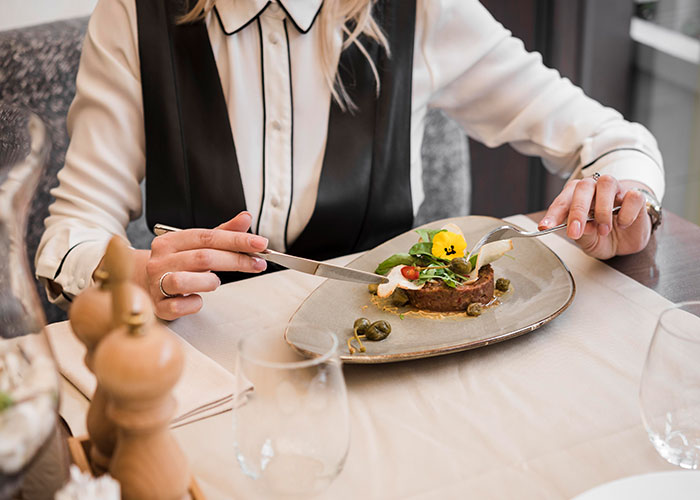
Image credits: freepik
Here are a few collected by Dr. Hussein Naji that should provide a better understanding of what we’re paying for
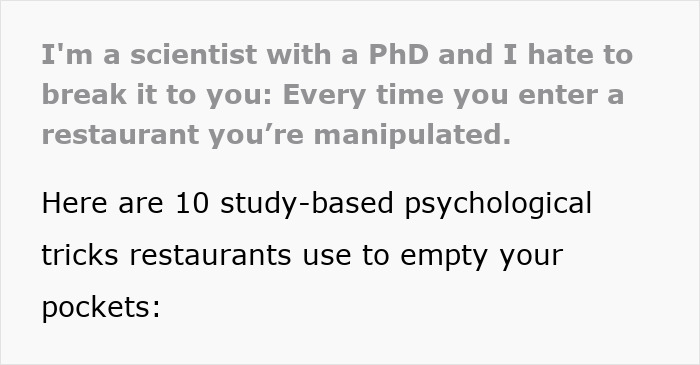
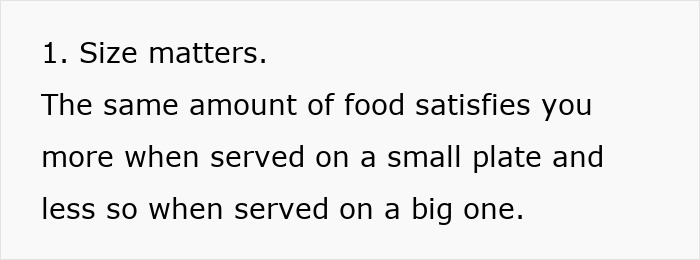
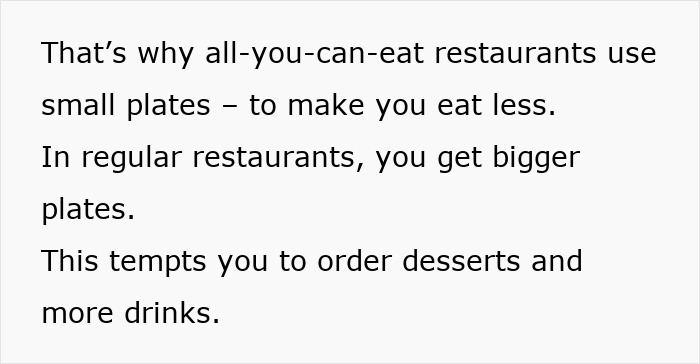
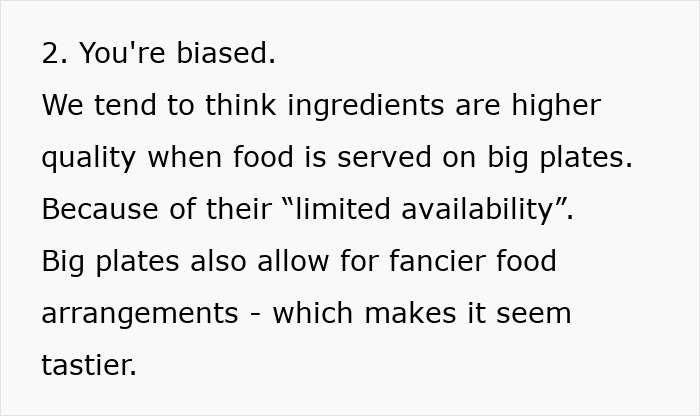
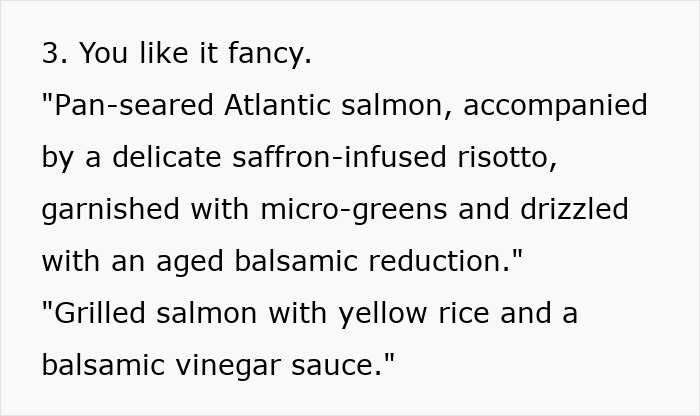
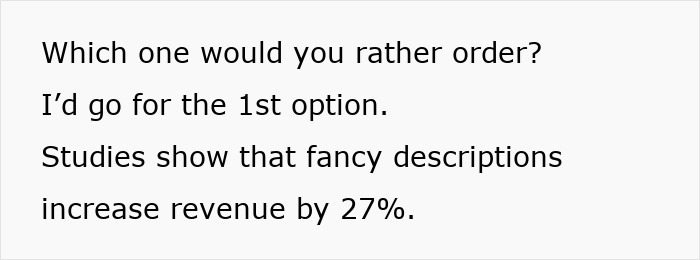
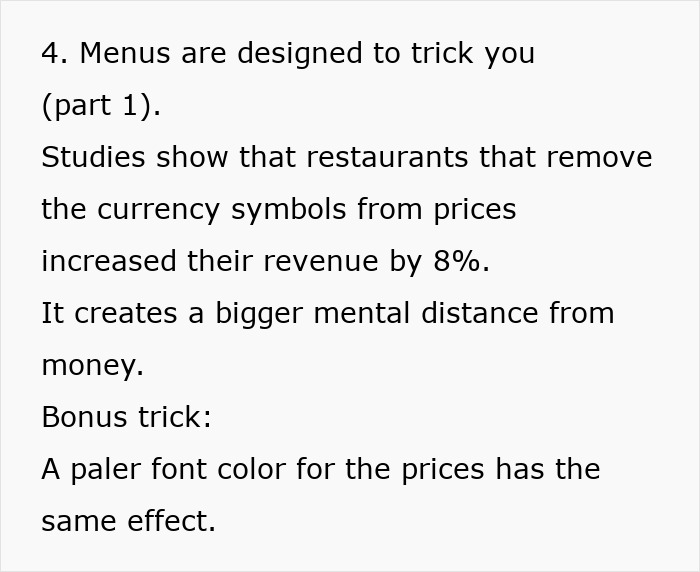

Image credits: freepik
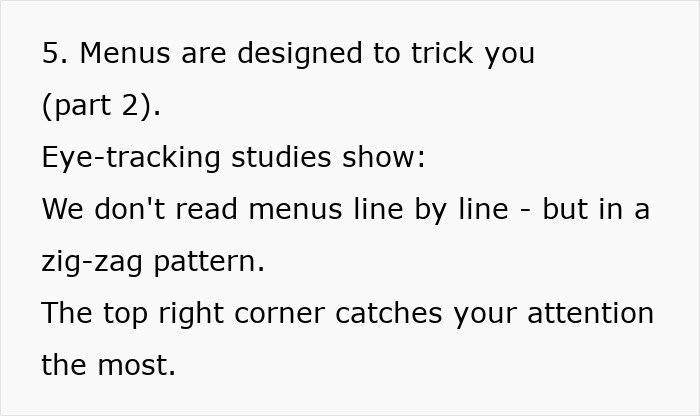
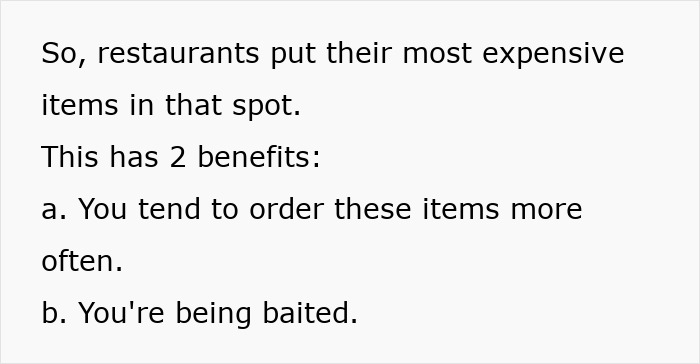

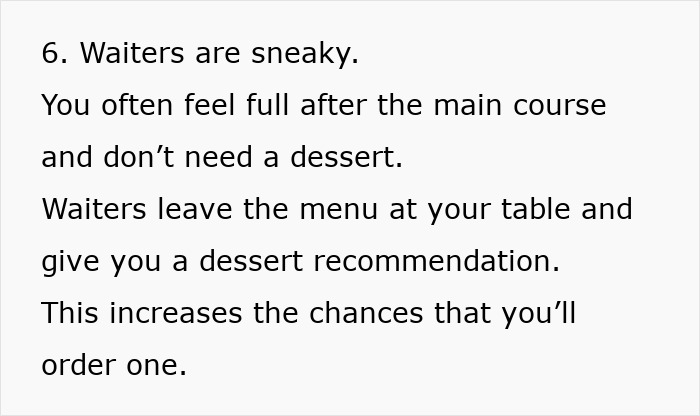
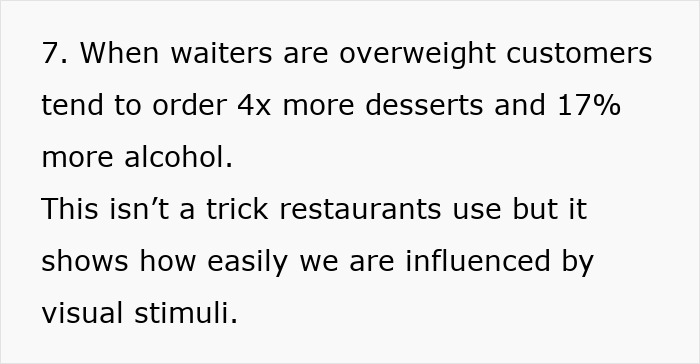
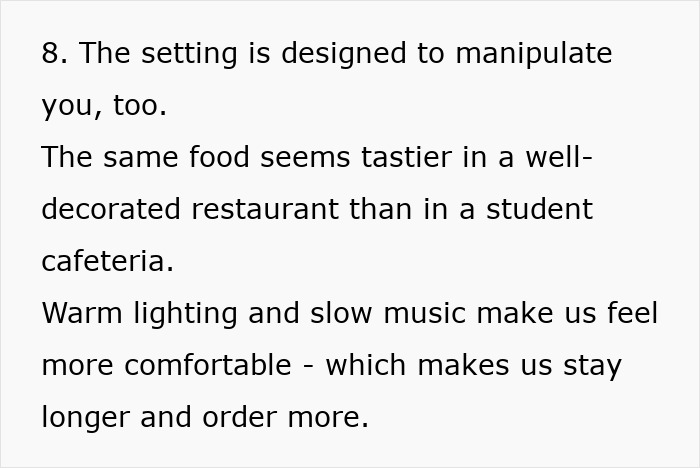
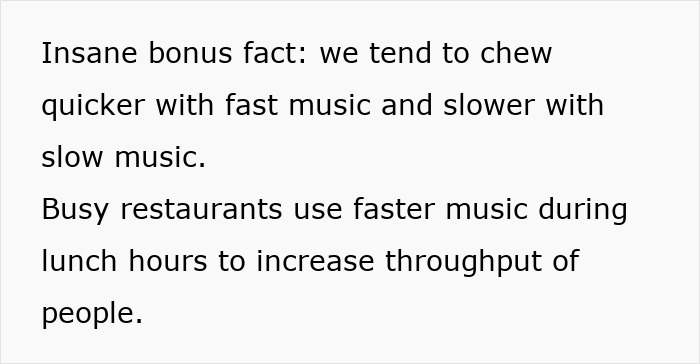
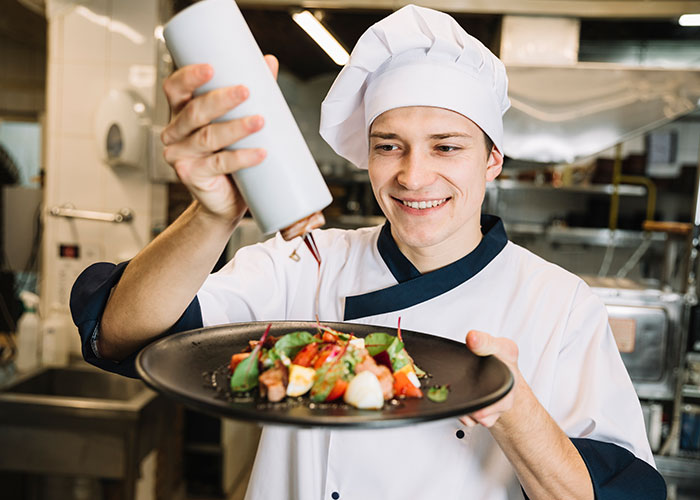
Image credits: freepik
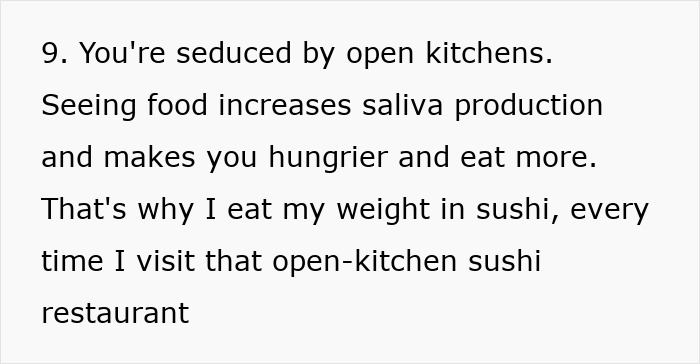
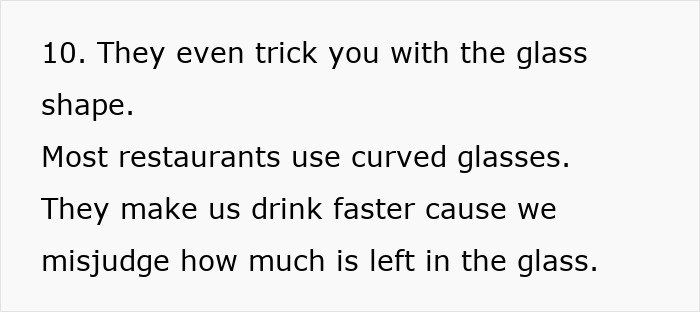
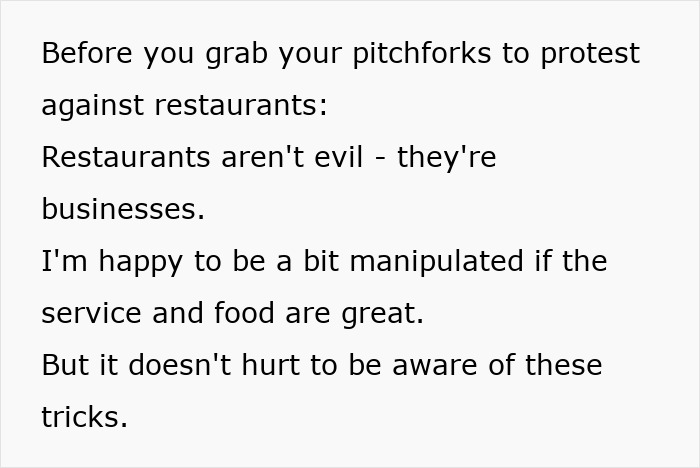
Image credits: husseinnaji_
The author of the post told us that it shouldn’t be viewed as an attack on the restaurant industry

Image credits: Hussein Naji
“Marketing is basically a branch of psychology that just means: ‘How can we make people think they want to buy our product’ [and] I love learning about psychology because it helps me understand myself and the world better,” Dr. Naji explained to Bored Panda about the origins of his now-viral thread. “I didn’t intentionally research this topic—I just randomly stumbled upon it online and found it super interesting. So, I decided to dive a bit deeper.”
“It was funny—and maybe also a bit annoying—to realize that I’m not immune to psychological tricks and have fallen for most of them. I love reading things that help me improve, and I love sharing what I’ve learned with others because if it helped me, it might help them too.”
However, the scientist highlighted that the post wasn’t intended as a warning against restaurants being unethical. “I still love going to them. After all, restaurants are just businesses trying to sell their products.”
“If a restaurant serves great food, has a friendly staff that makes me feel comfortable, and provides a pleasant experience, then I can live with being tricked into ordering that extra dessert. Restaurants are awesome—not only for their delicious food but also because they’re fantastic places to socialize,” he added.
But, finding the exact line between ethical sales and client manipulation can be tricky. “I’d say transparency and intent are huge factors,” Dr. Naji said. “By transparency, I mean clearly communicating what the customer is buying without withholding important information or making misleading claims to push a sale. By intent, I mean that a sale should always aim to benefit the customer in some way.”
“The goal should be a win-win situation where both parties feel satisfied. So, getting me to order that extra dessert is sneaky but not unethical—I know exactly what I’m getting, and I’ll be happy with it ’cause I’m eating delicious pistachio ice cream.”
For the most part, it seems like dining establishments manage to do this, at least in the US. According to a report on the State of the Restaurant Industry 2025, many restaurant customers—including 64% of full-service customers and 47% of limited-service customers—say their dining experience is more important than the price of the meal.
Overall, the study found that 9 in 10 adults say they enjoy going to restaurants. So even if the businesses are pulling some strings, they haven’t gone off the rails yet. Unlike the tipping culture.
As the reactions poured in, a few extra observations emerged

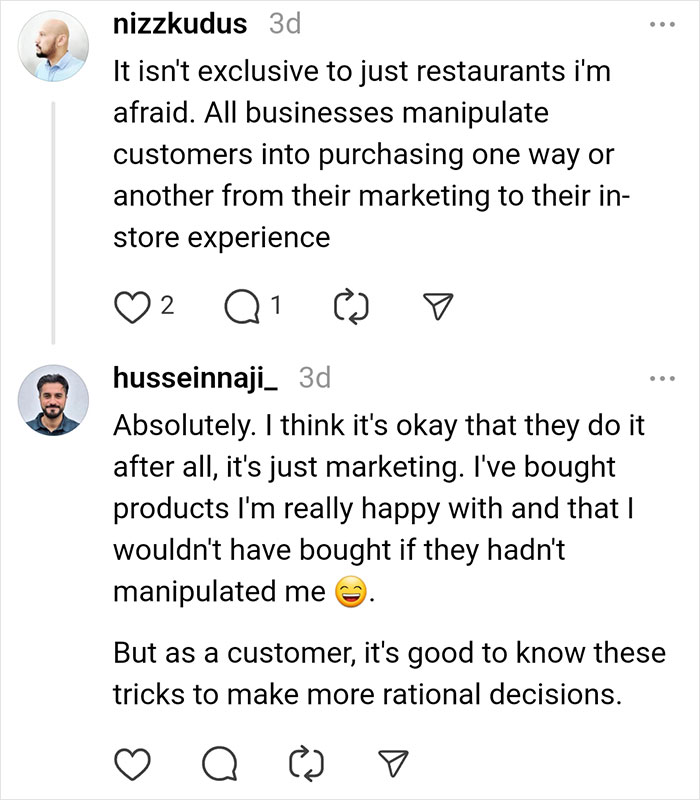
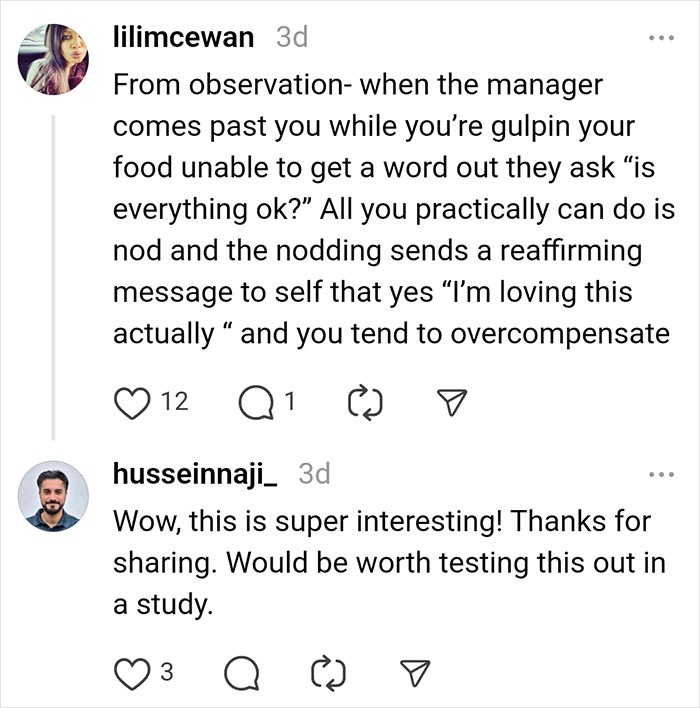
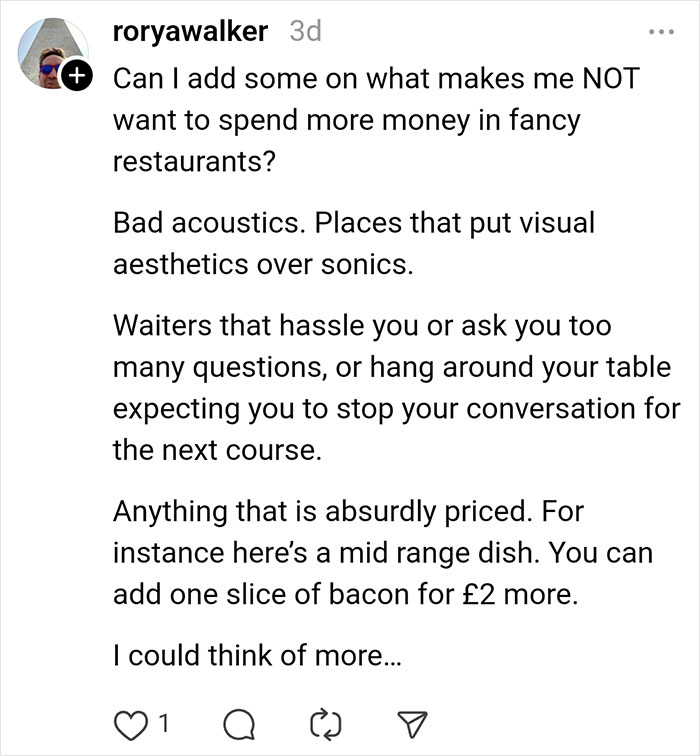



The post Scientist Shares 10 Ways Restaurants Manipulate Us Into Spending More Money first appeared on Bored Panda.
from Bored Panda https://ift.tt/s0V8yB2
via IFTTT source site : boredpanda